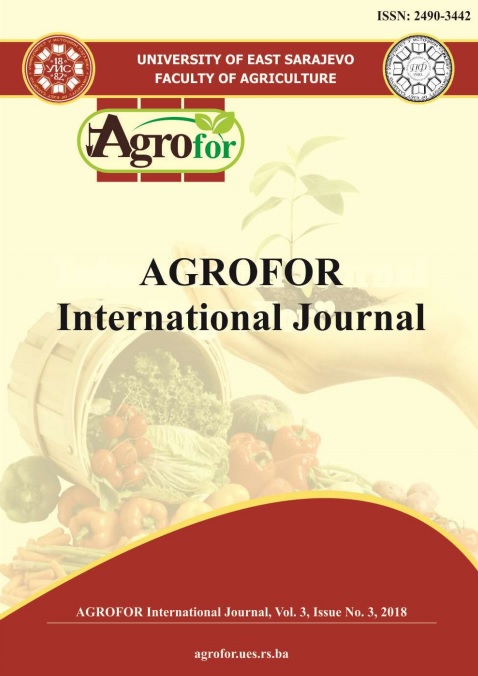COMPARATIVE BIODIVERSITY BETWEEN NO-TILL AND CONVENTIONAL TILL ON A CROP ROTATION
DOI:
https://doi.org/10.7251/AGRENG1803114MAbstract
The technological development that agriculture has suffered in recent decades has
affected biological diversity in agricultural fields. In particular, the life on the soil
surface, that is mainly constituted by invertebrates. This loss of biodiversity entails
the disappearance of natural processes that this organisms support. For this reason,
it is necessary to implement agronomic management that reduces impacts on
agricultural soils. One of these alternatives is no-tillage system, which is
characterized by the absence of soil ploughing and the maintenance of crop
residues on soil surface. In this sense, the present work has compared the existing
biodiversity in a crop rotation (sunflower-wheat-legume) between plots under notillage
and plots under conventional tillage systems. With this objective, insects,
arachnids, crustaceans and myriapods have been captured through pitfall traps.
Four plots have been sampled, 2 under no-tillage and 2 under conventional tillage.
In each plot have been placed 4 sampling areas, consisting of 5 pitfall traps each.
The catches made have shown higher biodiversity values in no-tillage compared to
conventional tillage. These differences have been significantly higher in terms of
number of species captured and with respect to the biodiversity indices of
Margalef, Simpson and Shannon. However, the increases in number of individuals
captured has not been significant as well as the uniformity indices of Pielou and
Simpson.

